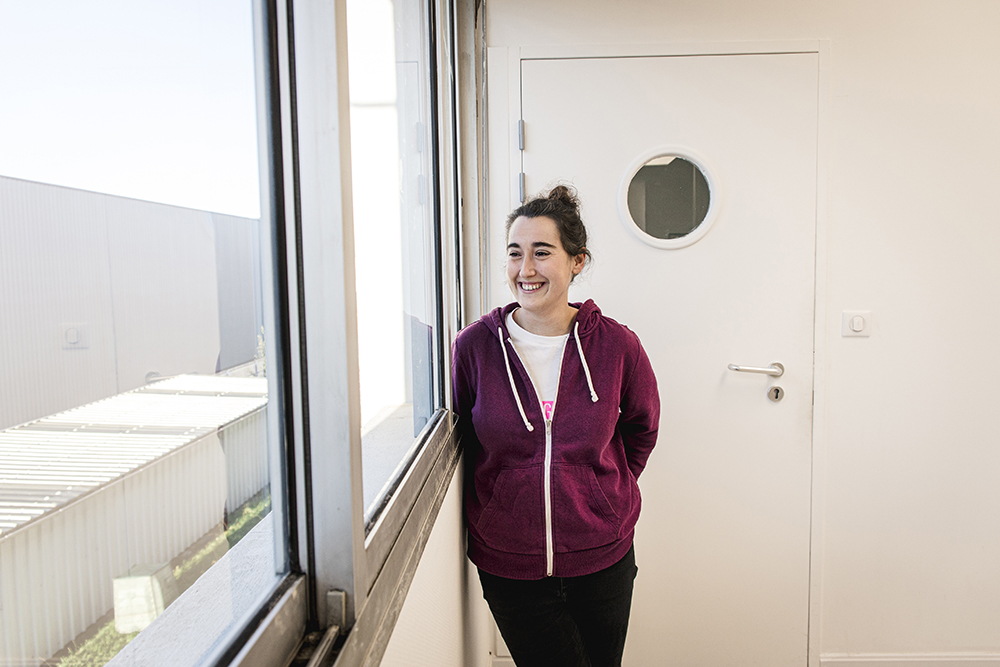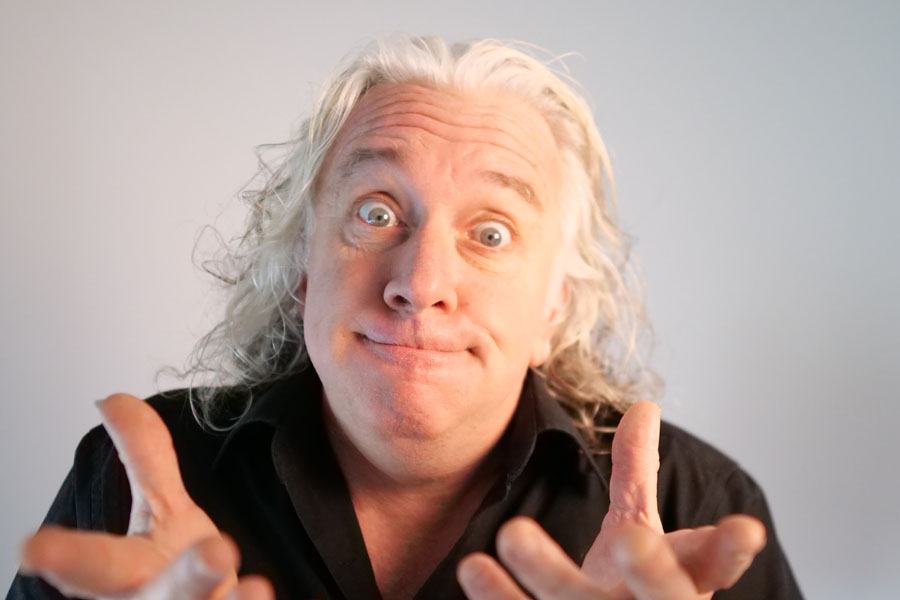“Humor should be free, but society is not free”
- Nerea Arriola Urberuaga (Donostia-San Sebastián, 1988) clearly states: “I don’t understand my life without theatre, it’s the only exercise that offers me freedom, it’s the only space that I get an absolute concentration.” Studied Nursing and the Performing Arts, recognizes that with the “salary” offered by the former, the latter can be approached. The Zurriola immersed herself in the Theatre School in her childhood and follows the lap of her waves, doing exercises on the stage and giving classes of clown to the children.

It offers monologues on the stage, but also teaches clown courses at the Theatre School of the Ikastola Zurriola of San Sebastian.
They called me to give clown classes to those in elementary school, and because I've grown up there and I'm still there, I couldn't say no. Zurriola Antzerki Eskola has been an important training space for me. My first red nose is from that time. Even though we were given one at school, one day of St. Thomas bought me Mother Tere at the fair in Gros. I remember very well that in a small position there was a man with a suitcase full of nose. “What is your nose?” he asked and I immediately chose one, eager. It's rubber and it's already very dissolved, but I've kept it. It's very special to me. Now I try to teach what I've learned. I'm on the other side and memory has been a very powerful exercise for me. I'm fascinated!
How do you teach to be clown?
Being clown is connecting to each other's naive side. Exercise is very emotional. There are a lot of techniques, games, methods... After all, we each have our clown and that's the key, finding yours, working.
Connecting with innocence is not a simple exercise, especially in adulthood. But at the age of nine, we're still naïve. Age is good for getting into this world. The imagination is there, and the truth is, I'm surprised with the students. At first they had a hard time looking and being surprised, but little by little. We do everything through the game. It is an exercise of great personal development. It's beautiful to see how timid people suddenly start to raise their voices, they start to internalize the occupation of space as well, to develop their personality ... “Make everything big,” Professor Joserra Facado told us, “the one in the last row also has to listen and see you.” Now it's me who says that. We learned through the game and I use the same path.
They are children, but the stereotypes that prevail in society are already present at that age.
Yes, with clown we learn to convey different feelings. Joy, sadness, anger… That is also very personal, because not everyone gets angry the same, for example, but the ways of expressing girls and boys are already marked for that age. Children, for example, when I ask for anger, immediately resort to violent body expression. Girls, however, no. It is also surprising to see what differences manage situations. I have recently had the opportunity to give a course of clown to older adults and in a very short time the pressure on physical appearance increases enormously: “I’m not pretty, I’m not pretty,” they say. We strive to tackle it.
Can Clown's figure help flush this?
I believe that at that age they are not very aware of it. The theater in general and the clown provides us with tools to develop that communication, to speak differently. They're other very important communication skills in life. I, for example, in adulthood have realized the resources that this broad world has offered me.
Culture has the capacity to transform. It can represent or cause a situation with it. Culture reproduces or transforms it and when it curiously transforms it is not comfortable. The same is true of humor. Some types of humor are not well received because they pose a challenge. However, it is impossible to make the humor that everyone likes. There will always be someone who disagrees, but it is also good and necessary. If the debate is going well and that means development, it is OK. It’s about who makes humor, what discourse is hegemonic, what you give it a place… And that’s also changing.
I am very aware of my whiteness. I know there are issues I cannot deal with. And if I do, I will do so in a very conscious and concrete way. That humor should be free? Yes, but at the same time society is not free. Furthermore, I believe that borders today are more closed than in the past. We all have the opportunity to think through social media. But the destruction must be differentiated from the mere issuing of opinions.
Has it been a gift to be able to offer a clown course?
Yes, I'm very happy. It is an exercise that I gladly do and I receive it as much as I have given. Working with children can be magical. Thanks to the Clown course I learn to listen, to be on the stage, to respect the shifts... I offer you a full backpack and I also go home with lots of materials every day. I'm very happy.
the stage was to create “Superchope [web section] almost without thinking anything. If there was a script, I didn't get it right. It was a lot of fun, we did the work with very few resources. The exercise was fresh. In front of the camera, I felt weird. We work directly with the public, because that's working in front of the camera. I wasn't used to it, I'm tabled. Although I have fun and the format is interesting, I like to work as a team. Because we are not alone in doing monologues, the group is always behind.”













